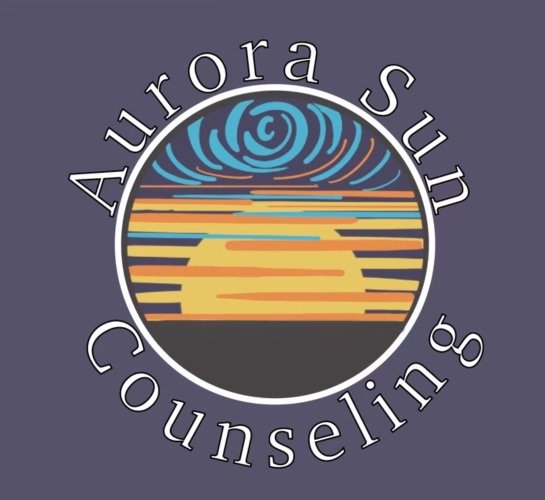Help! Am I a Codependent?
Please enjoy our newest blog post- this one was written by Fern Reinbeck, LPC. Fern is accepting new clients, so if this blog post speaks to you, reach out to us get started! -Alisha Brewster, Practice Manager for Aurora Sun Counseling
Hearing the words “I think you are codependent” from a therapist can be scary. My first thought as a client is “No, I do not depend on anyone”! The therapist then begins to ask questions such as:
Are you able to say how you feel, share your needs, speak YOUR truth?
Do you try to control the outcomes of situations, fix people, and/or feel persistent anxiety whether at work, with a partner, friends or family?
Are you afraid to say NO?
Are you able to set limits or boundaries?
Are you needy? Do you expect others to know what you are thinking?
These are only a few questions that may be asked.
Codependency is generally a learned behavior; one we witnessed growing up in our environments. That being said, it can also be that we have learned how to survive from events that took place in our lives that were out of our control.
For example: If we grew up in a home of addiction, we may have witnessed one of our primary caregivers trying to control the addict (fill in the addiction) by doing things such as pouring out their alcohol, following them to bars, checking their pockets, looking through their phones, calling in sick for them at work, bailing them out of jail, and or spending money to save them from themselves.
Afterwards, we saw them become angry, resentful, hurt, and lose themselves at the same time- feeling totally defeated, as if it were their fault that their partner was choosing their addiction over them.
The likelihood of developing such learned behaviors can increase if we grew up in a home of dysfunction, like witnessing one primary caregiver who was passive and another that was controlling (potentially narcissistic). We may watch one caregiver be submissive to the needs/desires of their partner and allow the other to control everything; what they wear, who they can spend time with, what they may buy/eat, how they style their hair, the color of their lipstick- (really!)? In these cases, the passive individual does not share his or her needs with their partner and instead, chooses to fall in line to avoid undesirable reactions..
As children, we witness this but we do not understand. Our brains are unable to process what is happening; however, our maladaptive, codependent behaviors begin to present early. We let our friends choose what we are going to do, we are afraid to share how we feel because our feelings never matter. We pick partners that we try to control, fix, or are completely submissive to. We do not have a voice. We never did. We are empty. We are indecisive. We are anxious. We are people pleasers at work, with our peers, and with our partners (attachment, another blog soon to come). We cannot say no. We do not know our passions. We have lost ourselves. We are living in fear. We are filled with guilt (that does not belong to us). We feel alone.
What can we do? The first step is recognizing some major traits areas:
control issues
inability to say no
becoming overly preoccupied with others’ lives
fear of abandonment or rejection
poor self-esteem
putting others before yourself
a desire to be needed
an inability to identify feelings and share them
fear of saying the wrong thing
enabling
caretaking and ‘fixing’
anxiety
inability to make decisions, thus leading to procrastination
…and more!
Yet, there is hope. Yes, there is recovery. There is treatment and support. It does get better. It takes work.
If your life has become unmanageable you are not alone. There are 12 step-meetings for codependents- CODA. There is one-on-one therapy with knowledgeable therapists (yes, we are human too!), and there are therapeutic groups that provide a safe space for you to share your experiences, strength, and hope with others who are also struggling with dependent traits.
My hope is that you feel safe enough to reach out, get the support you need, and ultimately know that you are worthy, you are enough, and you are loved for who you are.
I challenge you to look inside yourself, ask those really difficult questions, and respond to this blog by getting the help to help yourself. Your thoughts are always and forever welcomed.
-Fern

